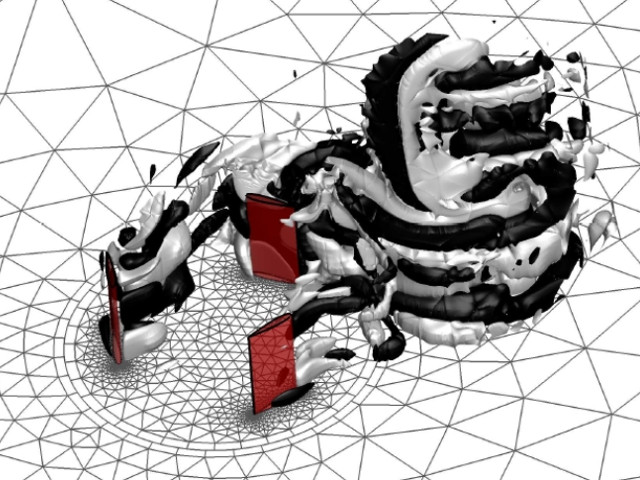Authors
P. Salgado Sánchez, J. M. Ezquerro, J. Porter, J. Fernández, I. Tinao
Journal Paper
https://doi.org/10.1016/j.ijheatmasstransfer.2020.119717
Publisher URL
https://www.sciencedirect.com/
Publication date
April 2020
Experiments on the melting of n-octadecane in the presence of a free surface were performed under the reduced gravity conditions of a parabolic flight, where natural gravitational convection is negligible. The results constitute the first systematic experimental investigation of the capacity of thermocapillary (Marangoni) convection to enhance heat transfer during the melting of organic Phase Change Materials (PCMs) in microgravity, where their low thermal conductivity leads to significant lag (long response times) that, in some applications, constrains their utility as passive thermal control devices. Rectangular containers of three different aspect ratios holding n-octadecane and a layer of air were heated from one side in order to observe the melting process. During the relatively short microgravity periods, which lasted approximately 20 s, the effect of thermocapillary convection remained concentrated in a layer near the free surface that is thinner than the PCM height H for the aspect ratios considered. The weak dependence of this layer on the lower region, where heat transport is dominated by thermal diffusion, means that the relative contribution of thermocapillary convection decreases with H. The experimental results are supported and complemented by a series of numerical simulations modelling the phase change and liquid dynamics with an enthalpy-porosity-based formulation of the Navier-Stokes equations. Very good agreement with the experimental observations is found.



